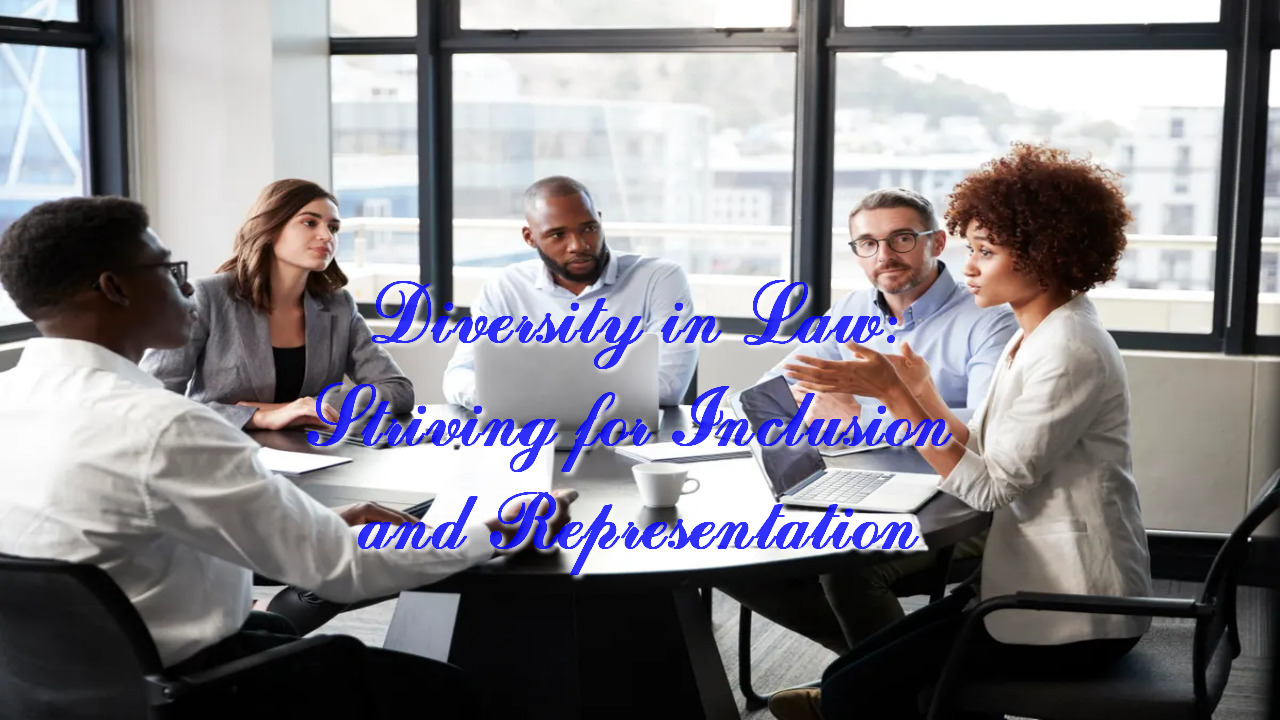The legal field, like many other sectors, has been grappling with the imperative of diversity, striving to create an inclusive environment that reflects the richness of the society it serves. Acknowledging that the profession historically lacked diversity, efforts have intensified to rectify this imbalance and ensure that legal institutions become more representative of the populations they serve. With increasing awareness of the benefits of diversity, the legal community has been making strides toward embracing a broader range of perspectives, experiences, and backgrounds.
Recognizing the Importance of Diversity

Diversity is not merely a buzzword; it is a fundamental aspect of a just and equitable legal system. A diverse legal profession, including professionals such as Hudson County criminal lawyers, is better equipped to understand the complex nuances of different cases and provide well-rounded solutions. The inclusion of individuals from various backgrounds enhances the quality of legal representation, as it broadens the array of viewpoints and fosters innovative problem-solving. Furthermore, diversity within the legal workforce enhances trust in the system itself, as individuals from all walks of life can see themselves reflected in the professionals who uphold justice.
Challenges and Progress
Despite growing recognition of the importance of diversity, the legal field still faces significant challenges in achieving true inclusivity. Historically, it has been predominantly male-dominated and lacking in racial and ethnic diversity. Women, minorities, and individuals from underrepresented backgrounds have encountered barriers to entry and advancement. However, recent years have witnessed noteworthy progress. Law schools are actively working to enroll more diverse student bodies, and legal firms are implementing strategies to promote diverse hiring and leadership initiatives. Organizations are striving to address implicit biases and ensure that diverse voices are heard at all levels of decision-making.
Benefits of Inclusivity

Inclusivity goes beyond merely ticking diversity boxes; it cultivates an environment that thrives on differences. A legal profession that actively seeks out and embraces diverse talent pools is better positioned to tackle complex legal challenges. Varied perspectives lead to more comprehensive problem-solving, helping to uncover innovative solutions that may not have been considered otherwise. In courtrooms, diverse legal teams can relate more effectively to a diverse jury, thereby enhancing communication and persuasion. In addition, diverse legal professionals bring unique cultural insights that can be invaluable in cross-border cases or matters involving cultural nuances.
Continuing the Journey
The journey toward true diversity and inclusion in the legal field is ongoing. It requires concerted efforts from law schools, legal organizations, and the broader legal community. Strategies include mentoring programs for underrepresented individuals, fostering an environment that values diverse voices, and implementing inclusive policies. Law firms are increasingly valuing diversity as a critical factor in their hiring decisions, recognizing that a diverse team not only improves client relations but also strengthens the firm’s overall performance.
In conclusion, the legal profession’s commitment to diversity is a reflection of its dedication to justice and fairness. Progress has been made, but there is still much work to be done to ensure that legal institutions are truly representative of the diverse societies they serve. Embracing diversity and striving for inclusion is not only a moral imperative but also a strategic advantage. A legal profession that welcomes individuals from all backgrounds enriches its collective wisdom, fosters innovative problem-solving, and instills public trust in the pursuit of justice. As the legal landscape continues to evolve, the pursuit of diversity remains an essential cornerstone of building a more just and equitable society.
